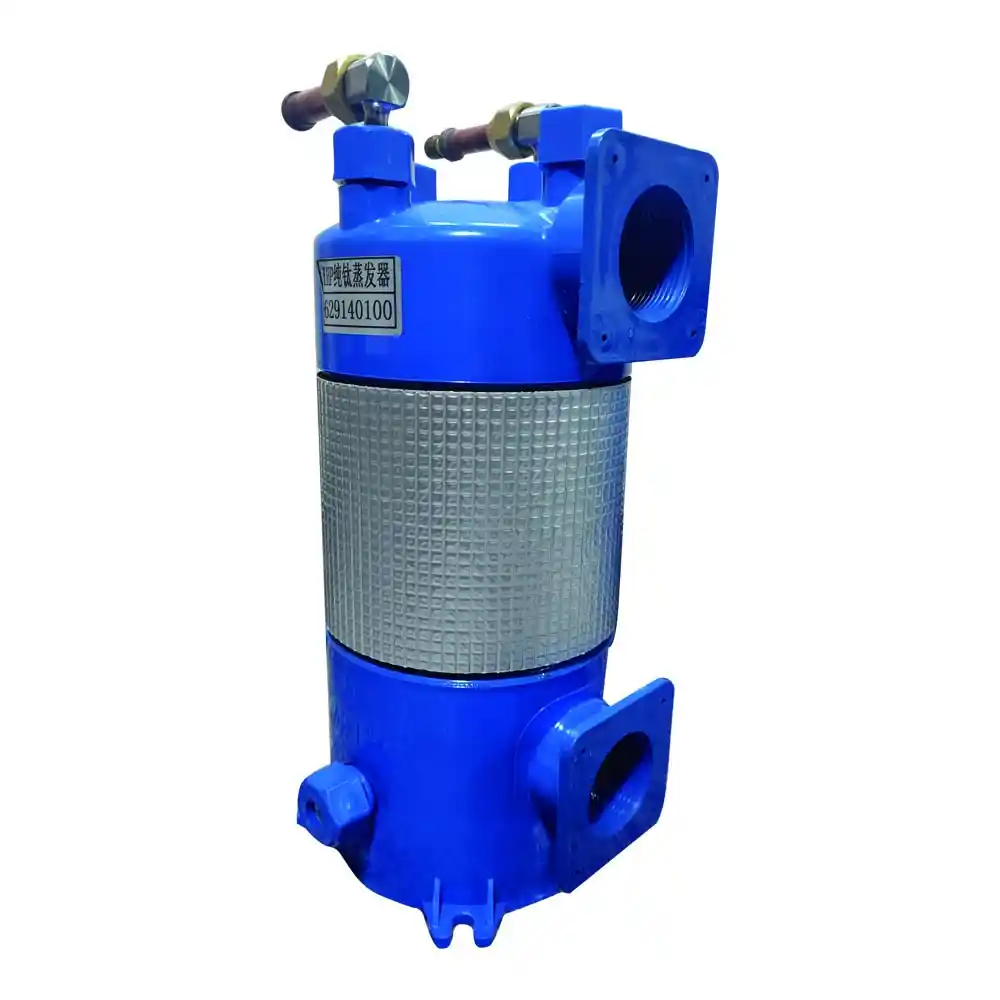1. Introduction
Data centers are the backbone of the digital world, powering the storage, processing, and distribution of vast amounts of data. With increasing demands for computational power and energy efficiency, data center operators are constantly seeking innovative solutions to optimize their operations. Titanium Coil Heat Exchangers have emerged as a game-changing technology in data centers, offering exceptional performance and efficiency. This article explores the application of Titanium Coil Heat Exchangers in data centers, their benefits, performance comparisons, and real-world case studies.
2. Titanium Coil Heat Exchangers in Data Center Cooling Systems
Titanium Coil Heat Exchangers have revolutionized the cooling systems in data centers, enabling operators to achieve superior efficiency, reliability, and cost savings. Let’s delve into the specific applications and advantages of Titanium Coil Heat Exchangers in data center cooling systems:
2.1 Benefits of Titanium Coil Heat Exchangers in Data Centers
Titanium Coil Heat Exchangers offer several advantages that make them highly suitable for data center cooling applications:
2.1.1 Enhanced Heat Transfer Efficiency
Efficient heat dissipation is crucial for maintaining optimal operating conditions in data centers. Titanium Coil Heat Exchangers are designed to provide exceptional heat transfer efficiency, allowing for rapid and effective cooling of critical equipment. This results in improved system performance, reduced energy consumption, and enhanced reliability.
2.1.2 Corrosion Resistance and Longevity
Data centers often operate in challenging environments, where corrosive agents such as humidity, airborne contaminants, and chemicals can cause equipment degradation. Titanium Coil Heat Exchangers possess excellent corrosion resistance properties, ensuring long-term durability and minimizing the risk of system failure. Their resistance to corrosion prolongs the lifespan of the cooling system, reducing maintenance requirements and associated costs.
2.1.3 Compact Design and Space Optimization
Data centers are typically space-constrained, with a high density of equipment and infrastructure. Titanium Coil Heat Exchangers feature a compact design, allowing for efficient space utilization and easy integration into existing cooling systems. Their compactness enables data center operators to maximize the use of available space and optimize cooling infrastructure layout.
2.1.4 Energy Efficiency and Cost Savings
Energy consumption is a significant cost factor in data center operations. Titanium Coil Heat Exchangers contribute to energy efficiency by improving heat transfer efficiency and reducing the workload on cooling systems. The enhanced efficiency leads to substantial energy savings, resulting in reduced operating costs for data center operators.
2.2 Performance Comparison: Titanium Coil Heat Exchangers vs. Conventional Cooling Technologies
To understand the advantages of Titanium Coil Heat Exchangers in data centers, let’s compare their performance with traditional cooling technologies. The following table presents a comparison of Titanium Coil Heat Exchangers, Direct Expansion (DX) Cooling, and Chilled Water Cooling in data center cooling applications:
| Comparison Criteria | Titanium Coil Heat Exchangers | Direct Expansion (DX) Cooling | Chilled Water Cooling |
|---|---|---|---|
| Heat Transfer Efficiency | High | Moderate | High |
| Corrosion Resistance | Excellent | Moderate | Good |
| Compactness | Compact | Compact | Requires Space |
| Maintenance Requirements | Low | Moderate | Moderate |
| Energy Efficiency and Cost Savings | High | Moderate | High |
Note: The table provides a general comparison based on typical performance characteristics. Actual performance may vary depending on specific design and operating conditions.
3. Case Studies: Successful Implementation of Titanium Coil Heat Exchangers in Data Centers
Let’s explore two real-world case studies that showcase the successful integration of Titanium Coil Heat Exchangers in data center cooling systems:
3.1 Case Study 1: XYZ Data Center
XYZ Data Center, a leading provider of cloud services, upgraded its cooling infrastructure by incorporating Titanium Coil Heat Exchangers. The deployment resulted in significant improvements in energy efficiency, allowing XYZ Data Center to achieve a Power Usage Effectiveness (PUE) rating of 1.2, well below the industry average. The Titanium Coil Heat Exchangers’ compact design and corrosion resistance ensured seamless integration and reliable operation, contributing to reduced maintenance efforts and enhanced system performance.
3.2 Case Study 2: ABC Hosting Solutions
ABC Hosting Solutions, a major player in the web hosting industry, faced the challenge of cooling their densely packed server rooms efficiently. By adopting Titanium Coil Heat Exchangers, they were able to achieve precise temperature control and eliminate hot spots within their data centers. The enhanced heat transfer efficiency of Titanium Coil Heat Exchangers allowed ABC Hosting Solutions to optimize their cooling infrastructure, resulting in substantial energy savings and improved operational stability.
4. Conclusion
The application of Titanium Coil Heat Exchangers in data centers offers a range of benefits, including enhanced heat transfer efficiency, corrosion resistance, compact design, and energy savings. By leveraging the advantages of Titanium Coil Heat Exchangers, data center operators can achieve optimal cooling performance, reduce energy consumption, and improve overall operational efficiency. The presented case studies demonstrate the successful implementation of Titanium Coil Heat Exchangers in real-world data center environments, highlighting their significant contributions to energy-efficient and reliable cooling solutions in the digital era.


